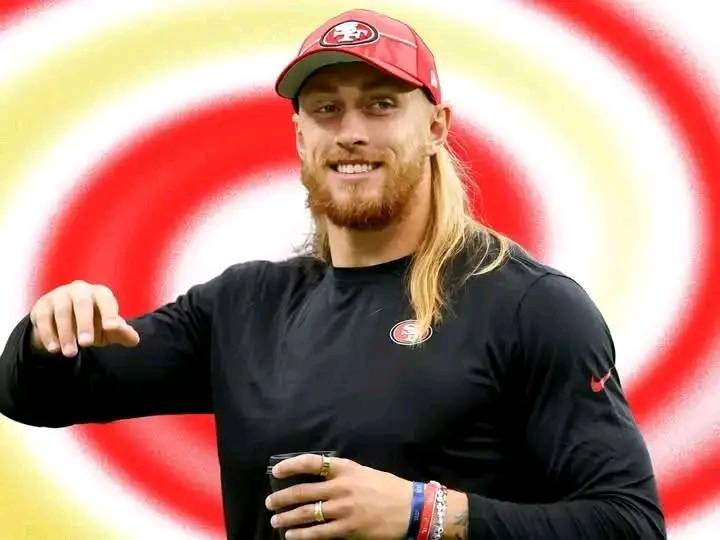The news of George Kittle’s trade from the San Francisco 49ers to the Minnesota Vikings is sending shockwaves through the NFL. After rejecting a massive 3-year, $89.7 million contract extension from the 49ers, Kittle has now agreed to a much more lucrative 5-year, $125.4 million deal with the Vikings. The trade deal, which comes after extensive negotiations between Kittle’s camp and the Vikings’ leadership, marks the end of Kittle’s impressive tenure with San Francisco and begins a new chapter for the tight end in Minnesota.
Impact on Minnesota Vikings
For the Minnesota Vikings, acquiring George Kittle represents a major upgrade for their offense. Kittle is widely regarded as one of the most complete tight ends in the league, excelling both as a receiver and as a blocker. His ability to stretch the field, make contested catches, and contribute to the running game makes him a perfect fit for a Vikings offense already featuring top-tier players like wide receiver Justin Jefferson and running back Dalvin Cook.
With Kirk Cousins under center, the Vikings now have a weapon in Kittle who can create mismatches all over the field. Kittle’s physicality and agility make him a matchup nightmare for any linebacker or safety tasked with covering him, and he could provide a much-needed safety net for Cousins when plays break down. The presence of Kittle could also alleviate some of the attention on Jefferson, who has consistently been one of the NFL’s most explosive wide receivers, but often faces double teams or heavy coverage. With Kittle drawing defenders away from the middle of the field, the Vikings’ passing game could become even more potent.
Moreover, Kittle’s leadership and mentality are likely to be invaluable assets for a team looking to make a deep playoff run. His championship pedigree, having won a Super Bowl with the 49ers in 2019, brings a level of professionalism and grit to a franchise that has seen its share of playoff heartbreak in recent seasons.
Impact on San Francisco 49ers
For the 49ers, the decision to trade Kittle—arguably their most dynamic offensive player—signals a potential shift in both their team-building philosophy and their financial strategy. Losing Kittle, who has been a cornerstone of the 49ers’ offense since being drafted in 2017, will be difficult for San Francisco’s fans to swallow. Kittle’s ability to impact the game in multiple ways—whether as a blocker on running plays or as a pass-catcher in the red zone—has been one of the key reasons for the 49ers’ offensive success over the years.
However, the return of a 2026 2nd Round Draft pick and a 2027 5th Round pick could be a sign that the 49ers are looking to the future. The 49ers, who have been consistently competitive under head coach Kyle Shanahan, may use the additional draft capital to solidify areas of need, such as bolstering their offensive line or finding a future star at wide receiver. San Francisco has a wealth of talent on defense, and trading Kittle could allow them to reallocate resources to continue to improve their defense or even make moves to build for the long term.
The trade also gives the 49ers flexibility with their salary cap, as Kittle’s new contract with the Vikings would likely have been difficult for San Francisco to absorb, especially considering the team’s other high-profile contracts. The 49ers may see this as an opportunity to move forward with younger players like tight end Charlie Woerner, who could step into a larger role and offer similar production in a more cost-effective manner.
Conclusion
Ultimately, George Kittle’s trade to the Minnesota Vikings is a high-stakes gamble for both teams. For Minnesota, it’s a chance to solidify their offensive core and make a legitimate push for a Super Bowl appearance in the near future. For the 49ers, it’s a decision to invest in their future by acquiring draft capital and freeing up cap space, even if it means parting ways with one of the league’s premier playmakers.
In the short term, the Vikings have undoubtedly made a statement by acquiring Kittle, but the long-term effects of this trade will hinge on how both teams manage their future rosters. The next few seasons will tell whether this trade was a win for one side or if both teams ultimately emerge stronger for it.

